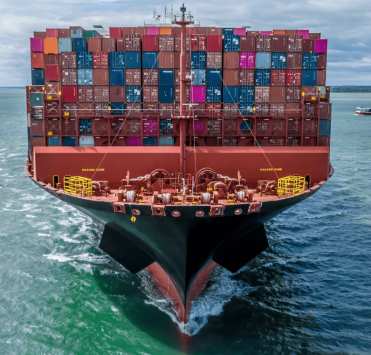Exporting goods from Ukraine: How to do it right

Exporting goods from Ukraine is a strategic direction for companies seeking to enter international markets and develop business outside the country. Today, participation in international trade opens up prospects for Ukrainian manufacturers and suppliers to increase sales, establish new business relations and generate significant income. However, the export process requires thorough preparation, legal and economic support, as well as a professional approach to logistics. In order to make export successful and avoid possible risks, let us consider the main stages, features and requirements for export activities.
1. Registration of a subject of foreign economic activity (FEA)
The first step for a company that plans to engage in export activities is official registration as a subject of foreign economic activity (FEA). This will allow the company to work within the framework of international trade and to carry out export operations legally.
- Registration of the company in the state registers of Ukraine is a mandatory step for the company to have the right to engage in foreign economic activity and enter international markets.
- Accreditation at customs - after registration it is necessary to pass the accreditation procedure in customs authorities, submit an application and documents, which allows you to legally export products outside of Ukraine.
Registration of the subject of foreign economic activity provides legitimacy of export activities and minimises risks in the implementation of logistics services and supplies to foreign markets.
2. Opening of currency accounts and compliance with currency control
Opening a foreign currency account is one of the mandatory steps for companies that plan to engage in export activities. It not only helps to receive payment for deliveries from abroad, but also ensures compliance with all requirements of Ukrainian currency legislation.
- Why do you need a currency account: A currency account is necessary to receive payment from foreign buyers. This is a prerequisite, as settlements with international partners are made in foreign currency (US dollars, euros, etc.), and such transactions must be officially formalised.
- The process of opening a foreign currency account: Opening a foreign currency account usually requires a minimum package of documents, which includes the company's registration details, the decision to open the account and other corporate documents. Once the account is opened, the company is able to accept payments from international partners and make foreign exchange transfers.
3. Finding markets and analysing competitors
Before starting export activities, it is important to conduct in-depth analyses of target markets and study the competitive environment. Finding suitable markets and understanding the needs of foreign customers will help make exporting successful.
- Analysing thedemand and needs of the target market: Studying the demand for products abroad allows a company to understand the demand for their product in the importing countries. This analysis may include using statistical data, studying industry association reports, data from Ukrainian trade missions and international trade analyses.
- Finding new markets: There are online databases, such as UN Comtrade and ITC Trade Map, where you can find out about commodity flows between countries. These platforms can help you find promising markets for exports and expand international trade links.
- Competitor Analysis: Studying competing companies in the selected international market helps to understand their pricing policies, product mix, marketing strategies and possible advantages. This will help in creating competitive advantages and selecting effective channels for product promotion.
Such a comprehensive analysis of the market and competitors allows you to form a clear strategy for successful entry into the international market and winning positions in the selected markets.
4. Preparation of a foreign economic contract
For successful export and effective work in international markets, a foreign economic contract plays a crucial role. This document should take into account all the terms of the transaction to ensure that the rights and interests of both parties are respected.
- Description of the goods to be exported: The contract must contain an accurate description of the products, including specifications, quantities and characteristics of the goods to be traded internationally.
- Terms of delivery and payment: The use of international Incoterms (e.g. FOB, CIF, EXW) helps to clearly identify which party is responsible for logistics services, transport, payment and insurance of the goods.
- Penalties and Guarantees: It is a good idea to include in the contract the terms of penalties in case either party breaches the terms of delivery or payment. This helps to mitigate risks and ensure fulfilment of contractual obligations.
- Currency Settlements and International Transfers: The terms of currency settlements should be clearly stated to avoid currency conversion problems and to comply with exchange control requirements.
A properly drafted external economic contract ensures safe export operations and helps the company to successfully participate in international trade.
5. Preparing documents for customs clearance
Successful customs clearance of products requires the preparation of a complete set of documents that will allow the export of goods without delays and obstacles.
- Customs Cargo Declaration (CCD): This is the key document that confirms that the goods have been cleared through customs and allows them to leave the country.
- Invoice: A document that specifies the value of the goods, the terms of delivery and the details of the parties.
- Packing list: It contains information about the weight and volume of the goods, as well as a description of the packaging.
- Transport Documents: Depending on the mode of transport, documents such as CMR for road transport, bill of lading or air waybill are used.
- Certificates of Origin and Quality: Many countries require proof of the quality and safety of the goods according to their standards. This is especially important for international markets with high product requirements.
- Licences and permits: If the goods are subject to licensing, all relevant permits must be obtained.
6. Compliance with importing country requirements
In order to successfully enter a new market, it is important that products comply with the requirements and standards of the importing country:
- ProductCertification: Products intended for export to the European Union must comply with EU safety standards, including CE marking if required.
- Quality control and phytosanitary certificates: Product certification is important for exports of food and agricultural products that require special documents such as phytosanitary certificates.
- Special storage and transport conditions: Some goods require special temperature conditions or special transport conditions. When exporting such goods, be sure to follow all transport conditions to avoid spoilage or product returns.
7. Customs Clearance
The customs clearance process involves several important steps:
- Submitting a customs declaration: Complete and accurate documentation helps avoid delays.
- Payment of duties and fees: Certain goods require payment of customs duties and fees.
- Passing inspections: Depending on the type of goods, additional inspections, such as sanitary or environmental control, may be required.
8. Logistics Organization and Delivery
Organizing logistics services is a crucial element of successful export, ensuring timely delivery of products to the end customer.
- Choosing a logistics partner: When selecting a company, consider its reputation, professionalism, and capability to reliably deliver to international markets.
- Type of transportation: Depending on the product type, you may choose road, rail, sea, or air transportation. For example, exporting goods with short shelf lives is best handled by air transport.
- Cargo insurance: To protect against potential losses and unforeseen events, it is recommended to insure cargo during transit.
- Temperature conditions and cargo safety: Ensuring the safety of cargo, especially if the product requires temperature control, is essential to minimize risks and guarantee product quality.
9. Currency Control and Payment Collection
Proper organization of currency control helps avoid issues with currency transactions:
- Compliance with foreign exchange revenue deadlines: Ukrainian foreign exchange regulations require adherence to deadlines for receiving foreign exchange revenue into accounts.
- Minimizing currency risks: It is essential to consider potential exchange rate fluctuations and protect against losses using forward contracts or insurance.
Recommendations for Successful Export
- Continuous market monitoring and flexibility: Success in international trade depends on a company’s ability to adapt to market changes and demands.
- Using online trading platforms: Platforms like Alibaba can help quickly and effectively expand sales geography.
- Effective marketing and promotion: Exporting goods requires a professional approach to promotion in international markets.
Exporting goods from Ukraine can open new opportunities for companies. However, for a successful entry into international markets, it is essential to entrust this process to experienced professionals. Contact Save Pro Solutions — your reliable partner in logistics services and international trade.









